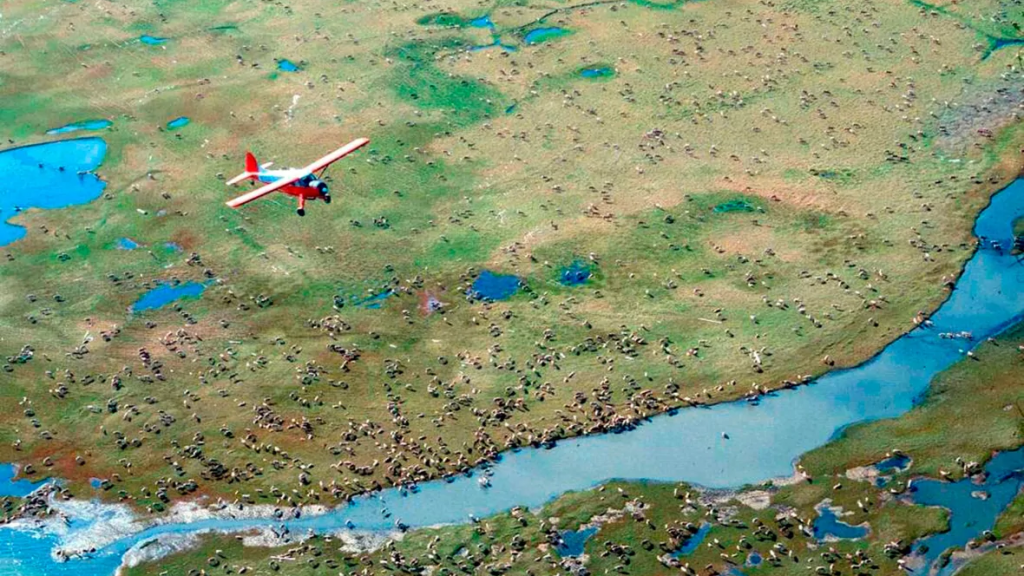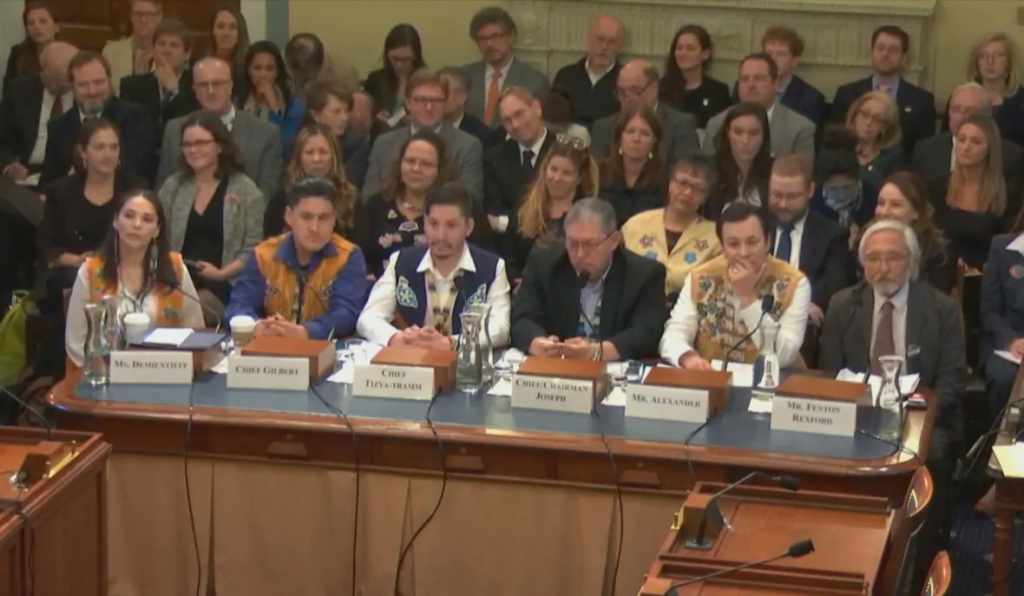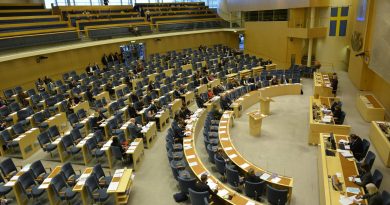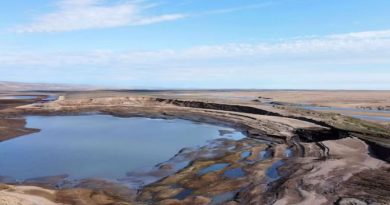Goldman Sachs will no longer fund drilling in Arctic refuge sacred to First Nations

In the wake of a U.S. banking giant’s announcement that it will no longer invest in new oil projects in the Arctic National Wildlife Refuge, Gwich’in leaders are heading to Bay Street to push some of Canada’s biggest banks to do the same.
Investment firm Goldman Sachs released an updated environmental policy framework this week. In it, the company says it will “decline any financing transaction that directly supports new upstream Arctic oil exploration or development,” including but not limited to new work in the Alaskan refuge.
It’s the latest win for Gwich’in leaders who have been lobbying banks to refuse to fund development in the refuge.
Supporters of drilling say it would be an economic boon in the region, but the Gwich’in and other critics note the refuge, which is a winter home for polar bears, is also sacred calving ground for the Arctic Indigenous group’s traditional food source: caribou.
“For them to really understand the importance of this makes my heart very humble and grateful,” said Gwich’in Steering Committee Executive Director Bernadette Demientieff.
May also be financially motivated
Goldman Sachs’s decision not to fund drilling in the refuge follows other international banks, including Barclays and the Royal Bank of Scotland, which have said they won’t fund exploration projects in the region.
In explaining its decision, Goldman Sachs acknowledged Indigenous people have used the land for centuries — but the decision may also be financially motivated.

“Oil development in the Arctic Circle is prone to harsh operating conditions, sea ice, permafrost coverage and potential impacts to critical natural habitats for endangered species,” the firm notes in its framework.
Demientieff said Gwich’in leaders have been talking with the bank for two years to get this result.
“We do not have the ability to give up … This is our way of life,” she said.
Scotiabank, TD, RBC, CIBC
Gwich’in leaders are now taking the fight north of the border.
CBC reached Vuntut Gwitchin First Nation Councillor Cheryl Charlie as she boarded a flight to Toronto earlier this week, where she she would go on to meet representatives from Scotiabank, Toronto-Dominion, Royal Bank of Canada and CIBC to ask them to follow the U.S. company’s lead.
Representatives from the Gwich’in Tribal Council and CPAWS Yukon were also at this week’s meetings.
“The Goldman Sachs announcement … is a step in the right direction,” she said. “Hopefully this week we can build on that.”
A representative from RBC confirmed the bank is meeting with the Vuntut Gwitchin First Nation and said they “regularly meet with a broad range of stakeholders to understand their perspective.” CIBC also confirmed it had met with the group.
Scotiabank declined to comment for this article. TD did not immediately respond to requests for comment.

On a recent episode of Goldman Sachs’ corporate podcast, Exchanges, John Goldstein, head of the company’s sustainable finance group, said that taking environmental issues into account can make investments less risky and improve one’s odds of making money.
“The business case is fundamentally better than it’s ever been,” he said.
The company said its decision will also apply to “upstream” oil exploration elsewhere in the Arctic, and that any transactions relating to Arctic oil that it does fund will be subject to “enhanced due diligence.”
Banks pull out, politicos weigh in
Banks have been pulling out even as U.S. President Donald Trump and Senate Republicans clear the political path to drilling in the region.
A 2017 tax cut approved by the then Republican-controlled Congress created a plan to allow oil leases in the area.
Vuntut Gwitchin First Nation Councillor Cheryl Charlie said Gwich’in people will continue to use every tool possible to stop drilling in the refuge.
“Talking to financial institutions in Canada is one strategy that we have … Talking to governments is another strategy,” she said.
“Altogether, it demonstrates the level of effort and commitment that the Vuntut Gwich’in is going to go … in order to protect our way of life.”
Related stories from around the North:
Canada: Canadian feds return $430M to oil and gas companies ahead of Arctic offshore exploration ban, CBC News
Finland: Finland investigates oil leak risks from Baltic Sea shipwrecks, Yle News
Iceland: Iceland to restrict heavy fuel oil use in territorial waters, Eye on the Arctic
Norway: LNG-reloading operations end in Norway’s Arctic waters, The Independent Barents Observer
Russia: Equinor drops plan for oil transfer terminal at Veidnes in northern Norway, The Independent Barents Observer
United States: Carnival Corporation ships switch to cleaner fuel on Arctic cruises, Radio Canada International



